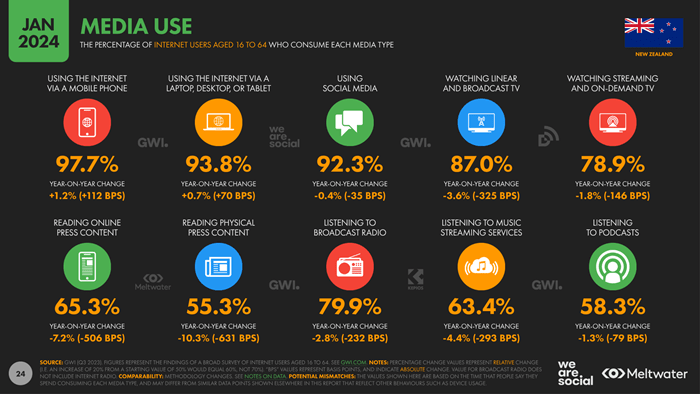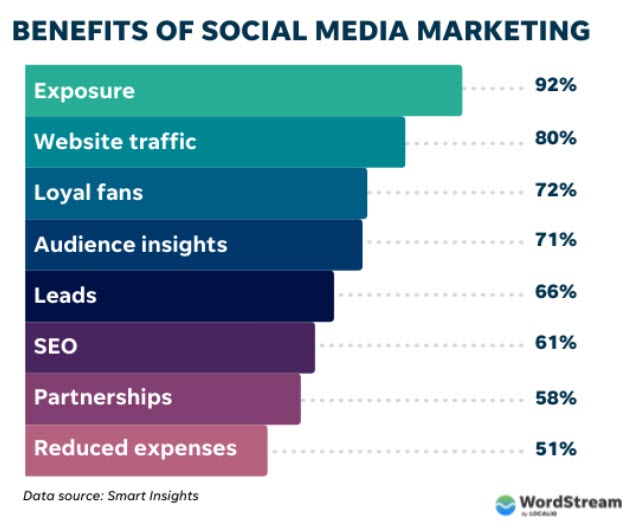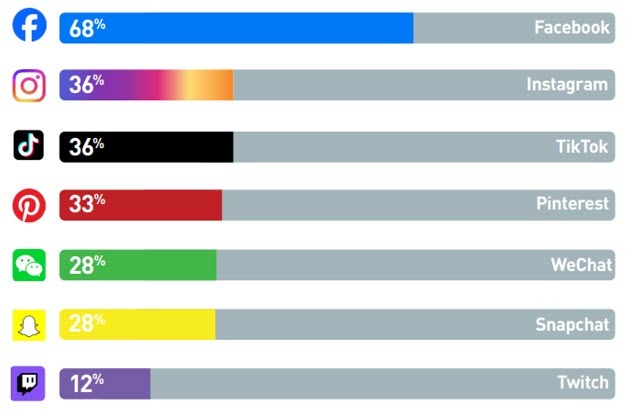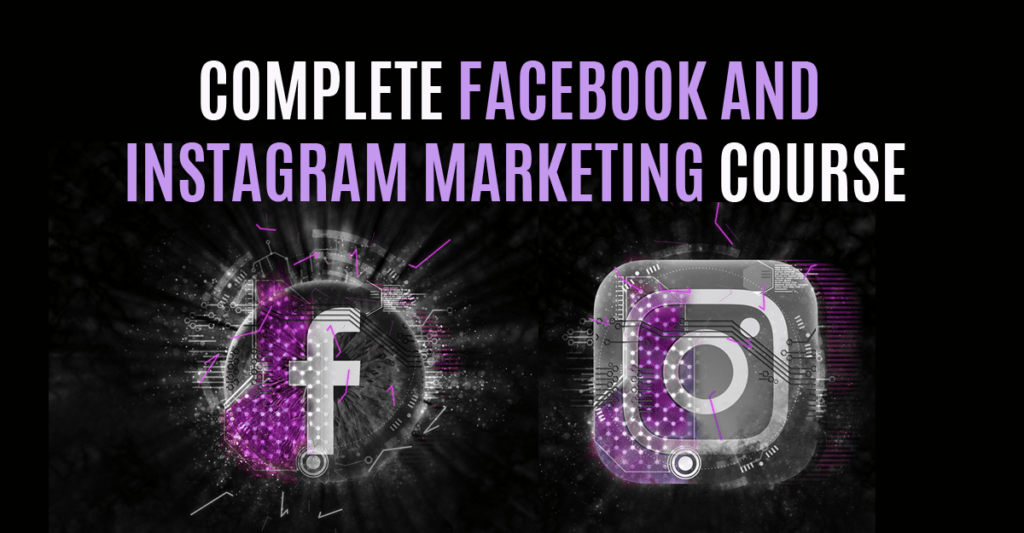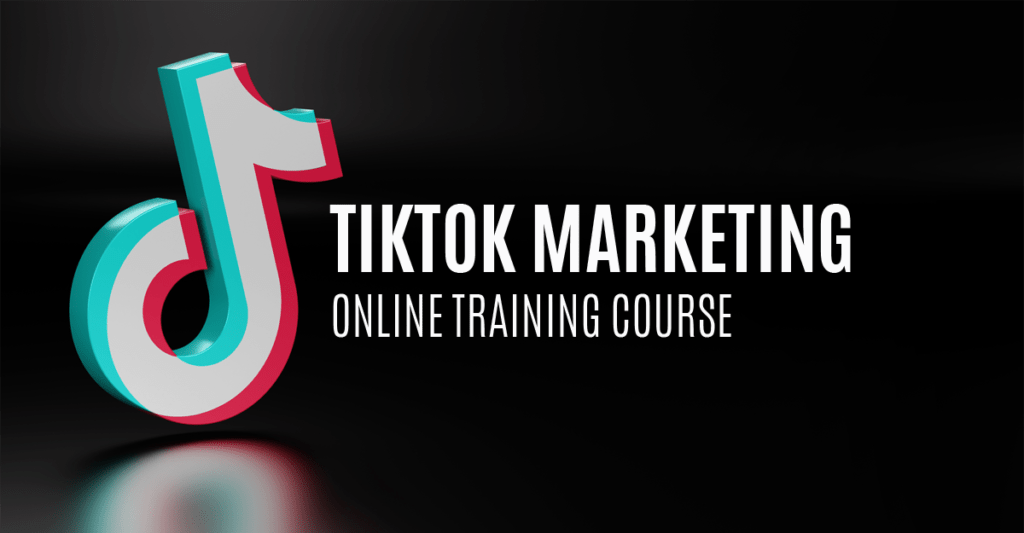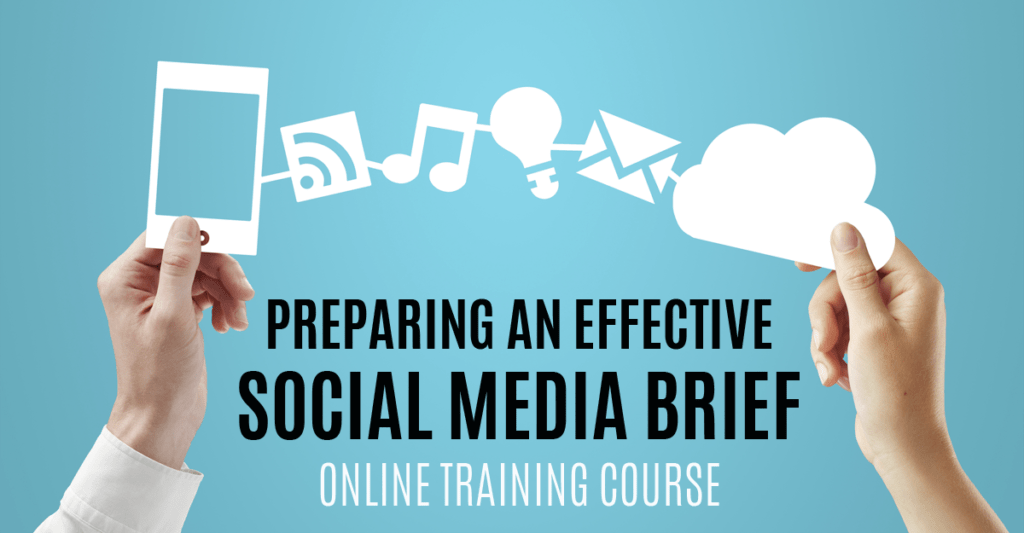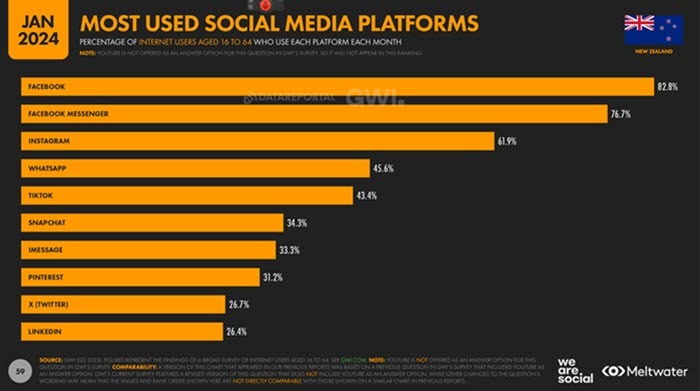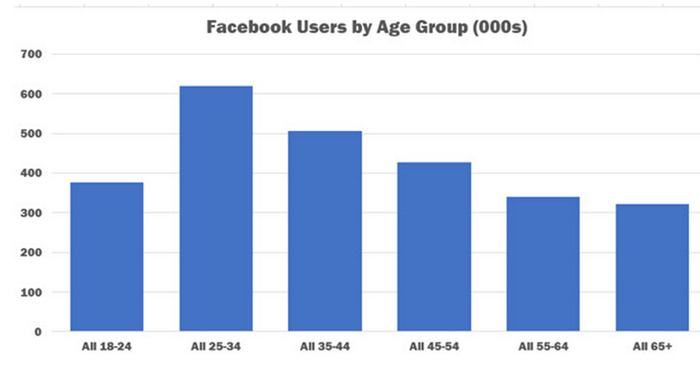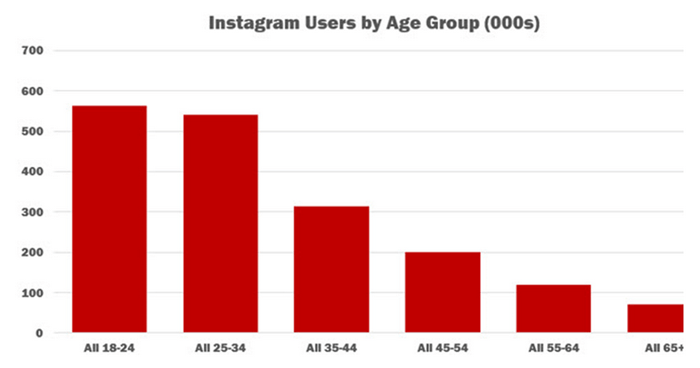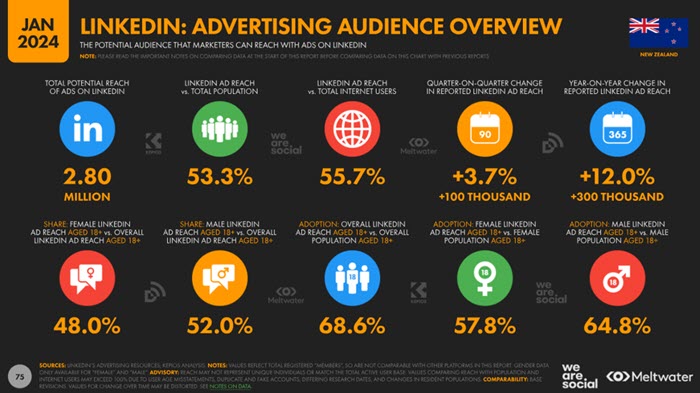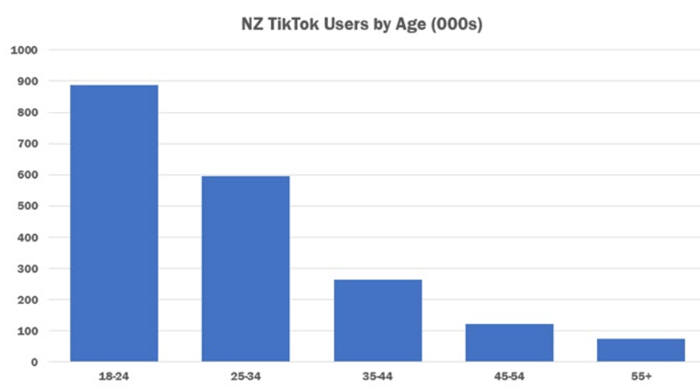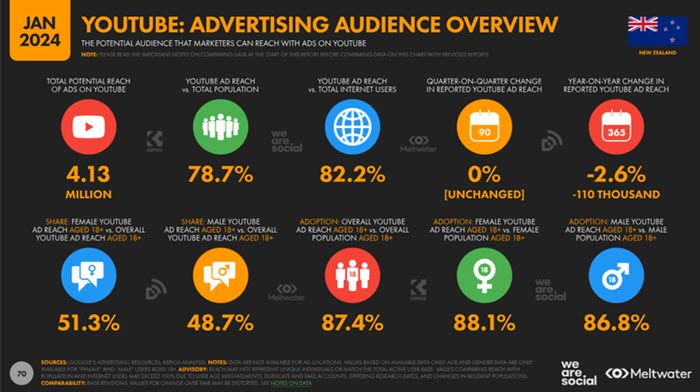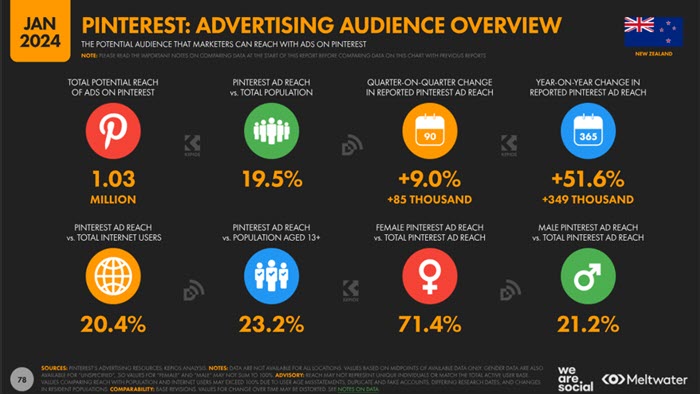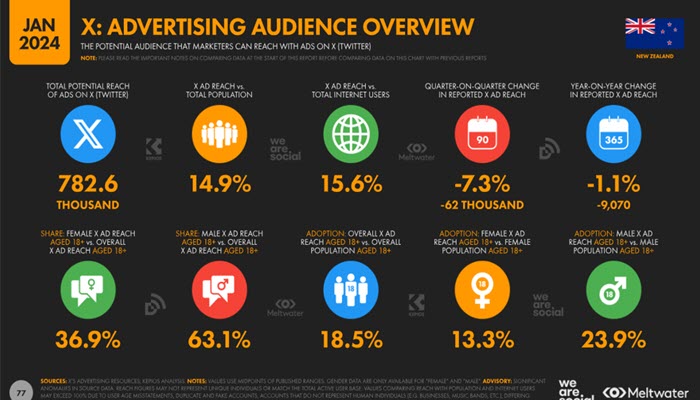Introduction to Social Media Marketing in New Zealand
Social media marketing has become an indispensable component of business strategy in New Zealand. With the rapid growth of digital marketing, businesses are increasingly recognizing the importance of leveraging social media platforms to enhance their brand visibility and engage with their target audience. In 2024, a staggering 92.3% of New Zealand Internet users were active on social media, spending an average of 2 hours and 15 minutes daily on various platforms like Facebook, Instagram, and TikTok.
This extensive engagement underscores the potential of social media as a powerful tool for businesses aiming to connect with customers.
For small to medium-sized businesses in New Zealand, understanding and implementing effective social media marketing strategies is crucial. Social media platforms offer unique opportunities for businesses to reach diverse audiences. For instance, LinkedIn is ideal for B2B marketing and professional networking, while Instagram and TikTok are excellent for brands targeting younger demographics with visually appealing content [1]. By selecting the right platforms, businesses can tailor their social media strategy to align with their marketing goals.
Developing a comprehensive social media strategy involves more than just posting content. It requires a strategic approach to content creation, audience engagement, and performance analysis. Businesses must create engaging content that resonates with their audience, utilizing eye-catching graphics, videos, and interactive elements to foster communication and brand loyalty [1]. Additionally, understanding metrics and analytics is vital to assess the effectiveness of social media campaigns and make data-driven decisions.
The rise of social media marketing courses in New Zealand reflects the growing demand for skilled marketers who can navigate the complexities of the digital landscape. Courses typically cover essential topics such as content creation, social media strategy, and video marketing, equipping learners with the knowledge and skills needed to excel in the field. These courses are designed to help businesses develop a social media strategy that enhances their marketing communications and drives business growth.
Understanding Digital Marketing and Social Media Marketing
Understanding the distinction between digital marketing and social media marketing is crucial for businesses aiming to maximize their online presence. Digital marketing is an umbrella term that encompasses all marketing efforts using digital channels, both online and offline, to promote products or services. This includes strategies like email marketing, search engine optimization (SEO), pay-per-click (PPC) advertising, and content marketing. In contrast, social media marketing is a subset of digital marketing focused exclusively on using social media platforms to engage with the target audience and promote brand awareness.
Digital marketing strategies are designed to reach a broad audience across various online channels. For example, a comprehensive digital marketing campaign might involve:
- using SEO to improve website visibility on search engines
- employing email marketing to directly communicate with potential customers; and
- utilizing PPC ads to increase brand exposure.
These strategies allow businesses to connect with their target audience at multiple touchpoints, enhancing brand recognition and driving sales.
Social media marketing, on the other hand, zeroes in on social media platforms like Facebook, Instagram, and TikTok to build brand presence and foster direct engagement with consumers. This approach is highly interactive, relying on engaging content and real-time communication to create meaningful connections with the audience. A successful social media marketing campaign might involve creating a series of engaging posts, videos, or live streams that encourage audience interaction and sharing.
One of the key advantages of social media marketing is its ability to generate quick responses and foster community building. For instance, brands can use social media to conduct polls, host live Q&A sessions, or launch viral challenges, as seen with platforms like TikTok. These activities not only boost brand visibility but also encourage user-generated content, enhancing brand loyalty and engagement.
Despite their differences, digital marketing and social media marketing are not mutually exclusive. In fact, integrating social media marketing into a broader digital marketing strategy can amplify a brand’s reach and effectiveness. For example, a business might use social media to drive traffic to its website, where visitors can find more detailed information or make purchases. By leveraging the strengths of both approaches, businesses can create a cohesive marketing strategy that maximizes their online presence and achieves their marketing objectives.
While digital marketing encompasses a wide range of strategies, social media marketing focuses specifically on engaging audiences through social media platforms. Understanding and effectively utilizing both can significantly enhance a business’s ability to connect with its target audience and drive growth in the digital age.
Why Learn Social Media Marketing?
Learning social media marketing is increasingly essential for businesses in New Zealand, especially for small to medium-sized enterprises aiming to enhance their digital presence. Social media marketing offers numerous advantages that can significantly impact a business’s growth and success.
One of the primary reasons to learn social media marketing is (as shown in the graphic above) exposure and the potential for increased brand visibility. Social media platforms like Facebook, Instagram, and TikTok provide businesses with the opportunity to reach a vast audience. As already noted, 92.3% of Kiwi Internet users use social media, making it a powerful tool for enhancing brand awareness and recognition [2]. By effectively utilizing social media channels, businesses in New Zealand can showcase their products and services to a broader audience, thus increasing their market reach.
And social media is a great source of product information, according to the 2024 NZ Couriers Ecommerce Report:
Moreover, social media marketing facilitates direct engagement with the target audience. Unlike traditional marketing methods, social media allows businesses to interact with customers in real-time, fostering a sense of community and loyalty. This interactive nature of social media marketing enables businesses to receive immediate feedback, address customer queries, and build strong relationships with their audience[3]. For example, brands that actively engage with their followers on platforms like Instagram often see higher levels of customer satisfaction and loyalty.
Another compelling reason to invest in social media marketing is its cost-effectiveness. Social media advertising offers affordable options for businesses to promote their products and services compared to traditional advertising channels like television or print media. This is particularly beneficial for small to medium-sized businesses in New Zealand, which may have limited marketing budgets. By strategically allocating resources to social media advertising, businesses can achieve a higher return on investment and reach their marketing goals efficiently.
Furthermore, social media marketing provides valuable insights into consumer behavior and preferences. By analyzing social media data, businesses can gain a deeper understanding of their audience’s demographics, interests, and online behavior. This information is crucial for developing targeted marketing campaigns and improving overall marketing strategies. For instance, businesses can tailor their content creation efforts to align with the preferences of their target audience, thereby increasing engagement and conversion rates.
By enhancing brand visibility through social media marketing, fostering audience engagement, and leveraging cost-effective advertising, businesses can unlock new opportunities for growth and success. Embracing social media marketing strategies will enable New Zealand businesses to stay competitive and relevant in an ever-evolving digital landscape.
Developing an Effective Social Media Strategy
Developing an effective social media strategy is essential for businesses aiming to maximize their reach and engagement on various social media platforms. A well-crafted strategy not only aligns with your business goals but also ensures that your social media efforts yield tangible results.
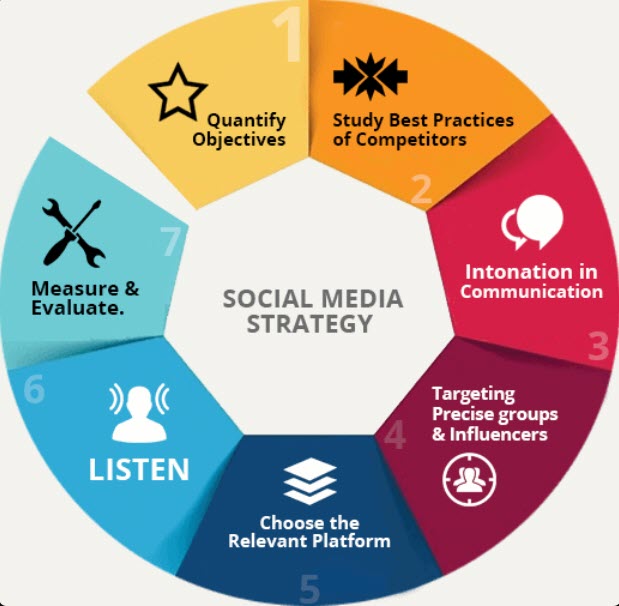
Image Source: https://www.amuratech.com/
Step 1: Define Your Goals
The first step in creating a social media strategy is to set clear and measurable goals. These goals should align with your overall business objectives and can include increasing brand awareness, driving website traffic, generating leads, or enhancing customer engagement. For instance, if a New Zealand business aims to boost brand awareness, its social media marketing strategy might focus on increasing its follower count and engagement rates on platforms like Instagram and Facebook.
Step 2: Know Your Audience
Understanding your target audience is crucial for developing a successful social media strategy. This involves researching your audience’s demographics, interests, and online behavior. Creating buyer personas can help you tailor your content to meet the specific needs and preferences of your audience. For example, if your target audience is primarily young adults, platforms like TikTok and Instagram may be more effective for your social media marketing efforts.
Step 3: Choose the Right Social Media Platforms
Not all social media platforms are created equal, and it’s essential to select the ones that best suit your business and audience. Focus on platforms where your target audience is most active. For instance, LinkedIn is ideal for B2B marketing, while Instagram and TikTok are popular for B2C engagement. By concentrating your efforts on the right platforms, you can ensure that your content reaches the intended audience.
Step 4: Develop a Content Strategy
A robust content strategy is at the heart of any effective social media plan. Determine the types of content that resonate with your audience, such as videos, infographics, or user-generated content. Consistency is key, so create a content calendar to plan and schedule your posts. This approach helps maintain a steady flow of engaging content that keeps your audience interested and engaged.
Step 5: Engage with Your Community
Social media is not just about broadcasting messages; it’s about building relationships. Engage with your audience by responding to comments, participating in discussions, and encouraging user interaction. This not only fosters a sense of community but also enhances brand loyalty and trust.
Step 6: Track and Measure Success
Finally, tracking and measuring the success of your social media strategy is vital for continuous improvement. Use analytics tools to monitor key metrics such as engagement rates, click-through rates, and conversions. Regularly reviewing these metrics allows you to refine your strategy and ensure that your social media efforts are aligned with your business goals.
Developing a comprehensive social media strategy involves setting clear goals, understanding your audience, choosing the right platforms, crafting engaging content, fostering community engagement, and continuously measuring success. By following these steps, businesses in New Zealand can create a social media plan that drives growth and achieves their marketing objectives.
Choosing the Right Social Media Course in New Zealand
Choosing the right social media course in New Zealand is crucial for business owners and marketers looking to enhance their digital marketing skills. With a variety of options available, selecting a course that aligns with your goals and schedule is essential for maximizing the benefits of social media marketing.
For those interested in flexible learning options, Netmarketing Courses provides a range of social media marketing courses that offer up-to-date content and practical insights, to ensure that learners remain at the forefront of social media marketing trends.
Our courses include:
The Principles & Practice of Social Media Marketing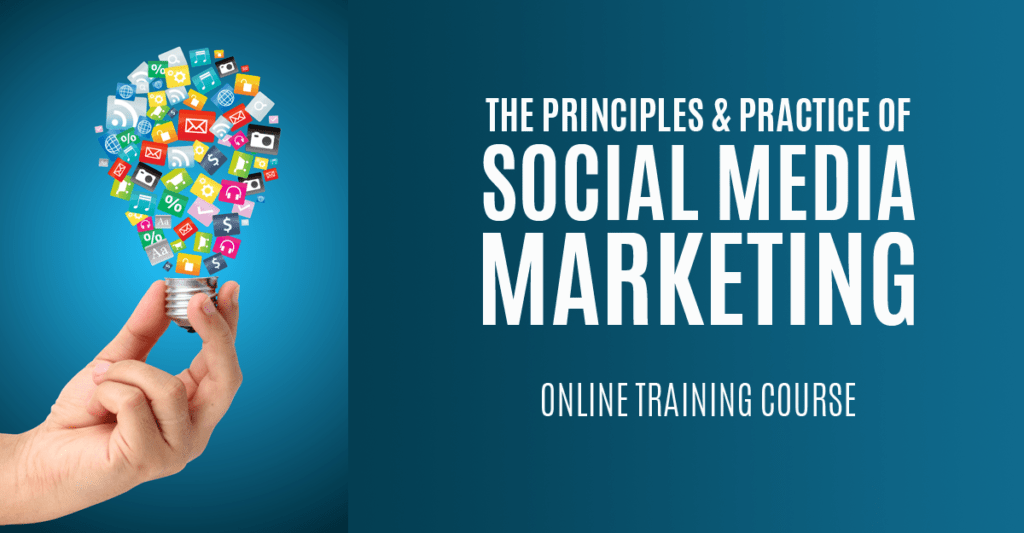
Elevate your social media game to new heights with our 13-part “Social Media Marketing Course,” specially tailored for New Zealand businesses relatively new to Social Media. This course offers a deep dive into the world of social media, equipping you with the strategies and tools necessary to create engaging content, foster a thriving community, and drive meaningful engagement across platforms. From the basics of platform selection and content creation to advanced techniques in analytics, advertising, and influencer collaborations, we cover everything you need to stand out in the crowded digital space.
For more details of the Social Media Marketing online course, please click here.
—
We also have a combined course that will help you master both of New Zealand’s most powerful social media:
By far the most powerful social media channels for NZ marketers these days are Facebook and Instagram.
That’s where the audiences are, and that’s where YOU need to be.
- Through Facebook you can reach an estimated 3.3 million Kiwis 13+
- Through Instagram you can reach an estimated 2.5 million Kiwis 13+
Of course, there’s rather more to Facebook and Instagram marketing than making a few posts or taking a few pretty pictures and hoping to reach large numbers of your target audience.
Effective social media marketing requires the right knowledge, tools, tips and techniques to help you get noticed and to encourage your audience to engage with you and your brand.
That’s where we can help.
In recognition of the combined strengths of Facebook and Instagram, we’ve taken the best of our popular Facebook and Instagram courses, and blended them together into a powerful thirteen-part Complete Facebook and Instagram Marketing online training course.
This combined course will bring you up to speed with what’s required to make your social media marketing on Facebook and Instagram really work for you.
Check out the details of our Complete Facebook and Instagram Marketing online training course by clicking here.
—
TikTok Marketing
If your target market is Kiwis Under 35 (or even just “young at heart”),you should consider TikTok marketing.
TikTok has exploded in popularity over the past few years, especially among younger audiences (thanks in part to Covid and the need for home-grown entertainment.
Check out our TikTok Marketing online training course by clicking here.
—
How to Prepare an Effective Social Media Brief
For more details of the How to Prepare an Effective Social Media Brief programme, please click here.
Online Video Marketing course
Step into the spotlight with our “Online Video Marketing Course,” tailored specifically for New Zealand marketers who want to leverage the power of video in their digital strategies. This immersive course covers everything from conceptualizing captivating video content to production essentials and distribution strategies that maximize reach and engagement, including the latest developments in AI that can enhance your creativity and reduce the time and resources required. Discover how to tell your brand’s story in a way that resonates with your audience, using the visual and emotional impact of video to create lasting connections and drive conversions.
For more details of the Online Video Marketing course, please click here.
—
Beyond the courses we offer, other popular choices include the Social Media Strategy Course offered by the New Zealand Institute of Education (NZIE). This course is designed to help participants develop a comprehensive social media strategy across major platforms like Facebook, Instagram, and TikTok. Delivered online, the course is structured to fit into busy schedules, with evening classes that allow learners to study at their own pace. [4]
Unitec offers a short Social Media Marketing Course that emphasizes practical skills and innovative digital marketing strategies. This project-based course covers essential topics such as content creation, social media advertising, and analytics. It is designed to meet industry demands and provides students with hands-on experience in running a social media marketing campaign. [5]
Exploring Social Media Platforms for Business
Exploring the right social media platforms for your business is a critical step in crafting an effective social media marketing strategy. Each platform offers unique advantages and caters to different audiences, making it essential to choose those that align with your business goals and target audience.
Here are the relative NZ performances of each social media platform:
Now let’s drill into a little more detail:
Facebook: The All-Rounder
Facebook remains the largest social media platform, with over 3 billion monthly active users globally, and reaching 3.3 million users in New Zealand. Facebook’s extensive reach and versatile content formats make it a go-to platform for businesses looking to enhance brand visibility and engagement. Facebook’s advanced advertising tools allow for precise targeting based on demographics, interests, and behaviors, making it ideal for businesses aiming to reach a diverse audience. For example, e-commerce businesses can leverage Facebook’s ad targeting options to promote products to specific customer segments, enhancing lead generation and conversions.
New Zealand Facebook usage by age group:
Instagram: Visual Storytelling
Instagram is a powerful platform for businesses focusing on visual content and storytelling. With 2 billion monthly active global users (and attracting 2.5 million NZ active users), it is particularly popular among millennials and Gen Z. Instagram’s features, such as Stories, Reels, and shoppable posts, provide businesses with creative ways to showcase products and engage with their audience. Brands like Nike have successfully used Instagram to create visually appealing campaigns that resonate with their target audience, driving brand awareness and customer engagement.
New Zealand Instagram usage by age group:
LinkedIn: Professional Networking
For B2B companies, LinkedIn is the ultimate platform for professional networking and thought leadership. With over 67 million companies and organizations worldwide, and 2.8 million active users in New Zealand, LinkedIn offers opportunities to connect with industry leaders and decision-makers. Businesses can use LinkedIn to share industry insights, recruit talent, and build partnerships. For instance, a marketing agency might use LinkedIn to publish case studies and articles that position them as experts in their field, attracting potential clients and collaborators.
TikTok: Viral Content and Engagement
TikTok has rapidly gained popularity, especially among younger audiences, with its short-form video content and viral challenges. With over 1 billion monthly active users (including 1.93 million Kiwis), TikTok is an excellent platform for brands looking to engage creatively with Gen Z. Companies like Chipotle have leveraged TikTok’s viral nature to launch successful campaigns that boost brand visibility and engagement. By participating in trending challenges or creating unique content, businesses can tap into TikTok’s high engagement rates to reach new audiences.
New Zealand TikTok users by age group:
YouTube: Long-Form Content
YouTube is the leading platform for video content, offering businesses the opportunity to create in-depth tutorials, product demonstrations, and storytelling videos. With 2.5 billion monthly active users (4.13 million in NZ), YouTube is suitable for businesses aiming to build brand authority and educate their audience. For example, a tech company might use YouTube to publish detailed product reviews and how-to guides, establishing themselves as a trusted source of information.
Oh, and just to round out the main social media platforms in use in New Zealand, here are the key stats for:
X (the social network formerly known as Twitter)
Content Creation and Video Marketing
Content creation is a vital component of a successful social media strategy, allowing businesses to engage effectively with their target audience. The rise of AI tools has revolutionized such processes, enabling marketers to produce high-quality content efficiently and creatively.
The Role of AI in Content Creation
AI-powered content creation tools have transformed the way businesses generate content. These tools use machine learning and natural language processing (NLP) to automate and enhance content production. Tools such as ChatGPT, Google Gemini, Anthropic’s Claude, Perplexity and many others are significantly improving the ability of businesses to generate written copy across a wide variety of use cases, such as creating engaging social media copy, blog posts, and ad scripts. By inputting prompts and guidelines, marketers can quickly generate content that aligns with their brand voice and objectives.
These tools help businesses scale their content output without increasing resources, making them ideal for small to medium-sized enterprises looking to maintain a robust online presence.
Video Marketing with AI
Video marketing is a powerful way to capture attention and convey messages effectively. AI tools such as Lumen5, Invideo and Pictory simplify video creation by automating editing processes and generating short, engaging clips from long-form videos. Other tools such as RunwayML’s Gen-3, LumaLabs’ Dream Machine, Haiper, Kling and many more enable image-to-video and even text-to-video capabilities that were unimaginable even a couple of years ago.
AI-driven video editing tools can intelligently assemble rough cuts based on predefined parameters, allowing creators to focus on the creative aspects of video production. This not only streamlines workflows but also enhances productivity, enabling businesses to produce more content in less time.
Enhancing Creativity with AI
AI is not just about efficiency; it also acts as a creative catalyst. AI Design tools like Midjourney and DALL-E generate unique visuals from text prompts, offering endless possibilities for content creation. These AI-powered image generators help marketers produce visually appealing content that stands out on social media platforms.
Moreover, AI tools can assist in brainstorming new content ideas and generating variations on existing concepts. This capability is invaluable for overcoming creative blocks and exploring new storytelling avenues, ultimately leading to more engaging and diverse content.
Data-Driven Content Strategies
AI tools also provide data-driven insights that inform content strategies. By analyzing user behavior and preferences, AI can help marketers tailor their content to resonate with specific audiences. This personalized approach ensures that content not only reaches but also engages the target audience effectively.
Advanced Digital Marketing Strategies
Advanced digital marketing strategies are essential for businesses aiming to stay competitive in the rapidly evolving digital landscape. By leveraging cutting-edge techniques, businesses can enhance their online presence, engage more effectively with their target audience, and drive growth.
Personalization and Targeting
Personalization is a cornerstone of advanced digital marketing strategies. By using data analytics, businesses can tailor their marketing efforts to meet the specific needs and preferences of individual customers. This involves segmenting audiences based on demographics, behaviors, and interests to deliver personalized content and offers. For example, Amazon uses personalized recommendations to increase customer engagement and sales. By analyzing past purchase behavior and browsing history, Amazon provides tailored product suggestions that resonate with individual users, thereby enhancing the shopping experience and boosting conversion rates.
Programmatic Marketing Automation
Programmatic marketing automation is another advanced strategy that enables businesses to automate the buying of digital advertising space. This approach uses AI to purchase ads in real-time, targeting specific audiences with precision. It allows marketers to optimize their ad spend by reaching the right audience at the right time. According to forecasts, programmatic advertising is expected to account for a significant portion of digital marketing spending, highlighting its importance in modern marketing strategies[6].
Influencer Marketing
Influencer marketing has gained traction as a powerful tool for reaching niche audiences. By partnering with influencers who have a strong following in specific sectors, businesses can leverage their credibility to promote products and services. This strategy is particularly effective on social media platforms like Instagram and TikTok, where influencers can create authentic content that resonates with their followers. For instance, fashion brands often collaborate with influencers to showcase their products, driving brand awareness and sales.
AI and Machine Learning
AI and machine learning are transforming digital marketing by providing deeper insights into customer behavior and enabling predictive analytics. These technologies allow businesses to automate tasks such as content creation, customer segmentation, and campaign optimization. AI tools like chatbots enhance customer service by providing instant responses to inquiries, improving customer satisfaction and engagement. Additionally, machine learning algorithms can analyze vast amounts of data to identify trends and patterns, helping marketers make informed decisions and refine their strategies.
Omnichannel Marketing
Omnichannel marketing integrates various marketing channels to provide a seamless customer experience. This strategy ensures that customers receive consistent messaging across all touchpoints, whether they are interacting with a brand online, in-store, or through mobile apps. By creating a unified brand experience, businesses can enhance customer loyalty and drive sales. For example, in the US Starbucks uses an omnichannel approach by integrating its mobile app with in-store experiences, allowing customers to order and pay through the app and pick up their orders at a nearby location.
Frequently Asked Questions
What are the key skills needed to succeed in social media marketing?
To excel in social media marketing, a diverse set of skills is required. Key skills include strong writing and storytelling abilities, which are essential for creating engaging content that resonates with the target audience. Visual design skills are also crucial, as social media is a highly visual medium. Familiarity with content creation tools like Canva and Adobe Spark can enhance the quality of your visuals. Additionally, understanding SEO and analytics is important for optimizing content and measuring the success of social media campaigns. Creativity, adaptability, and strong communication skills are also vital, as they enable marketers to respond effectively to trends and engage with audiences across various social media platforms.
How do I create an effective social media marketing strategy for my business?
Creating an effective social media marketing strategy involves several steps. First, define clear and measurable goals that align with your business objectives, such as increasing brand awareness or driving website traffic. Next, identify your target audience and choose the social media platforms where they are most active. Develop a content strategy that includes a mix of informative, entertaining, and promotional content, and create a content calendar to ensure consistent posting. Engage with your audience by responding to comments and messages, and use analytics tools to track performance and refine your strategy.
What are the benefits of taking a social media marketing course offered by New Zealand providers?
Taking a social media marketing course in New Zealand offers several benefits. These courses provide hands-on experience and practical skills that are directly applicable to real-world scenarios. They cover essential topics such as content creation, social media strategy, and analytics, equipping learners with the knowledge needed to succeed in the digital marketing landscape. Additionally, courses offered by New Zealand providers often focus on local market trends and consumer behavior, providing valuable insights for businesses operating in NZ.
How do online social media courses differ from in-person, on-campus programs?
Online social media courses offer flexibility and convenience, allowing learners to study at their own pace and from any location. These courses often include interactive modules, video lectures, and online forums for discussion. In contrast, on-campus programs provide face-to-face interaction with instructors and peers, which can enhance the learning experience through networking and collaboration. Both formats have their advantages, and the choice depends on individual learning preferences and schedules.
Conclusion
In conclusion, learning social media marketing in New Zealand is a strategic move for small to medium-sized businesses aiming to thrive in the digital age. The comprehensive exploration of social media marketing reveals its critical role in enhancing brand visibility, engaging with target audiences, and driving business growth.
Understanding Social Media Marketing
Social media marketing is a subset of digital marketing that focuses on leveraging social media platforms to promote products and services. It involves creating and sharing content to boost brand awareness and engage with customers. Platforms like Facebook, Instagram, TikTok, and LinkedIn offer unique opportunities for businesses to connect with their audiences in meaningful ways.
The Importance of Social Media Education
Investing in a social media marketing course can provide invaluable benefits. Courses offered by New Zealand providers equip learners with practical skills in content creation, social media strategy, and analytics. These programs are designed to meet the needs of local businesses, offering insights into market trends and consumer behavior specific to New Zealand. Online courses offer flexibility, allowing learners to study at their own pace, while on-campus programs provide face-to-face interaction and networking opportunities.
In summary, mastering social media marketing is vital for businesses in New Zealand looking to leverage the power of digital marketing. By understanding the nuances of social media platforms, investing in education, and developing a strategic approach, businesses can effectively engage with their audience and achieve their marketing goals. As the digital landscape continues to evolve, staying informed and adaptable will be key to maintaining a competitive edge in the market. Embracing these strategies will enable New Zealand businesses to harness the full potential of social media marketing and drive long-term success.
More Information on our Social Media Marketing Courses
For more information on the many courses we offer, please click here.
Citations:
[1] https://socialmedia.org.nz/social-media-marketing-courses/
[2] https://influencity.com/blog/en/top-12-benefits-of-social-media-marketing
[3] https://www.sprinklr.com/blog/advantages-and-disadvantages-of-social-media-marketing/
[4] https://nzie.ac.nz/short_course/social-media-strategy-course/
[5] https://www.unitec.ac.nz/career-and-study-options/marketing/social-media-marketing-course
[6] https://blog.uniqodo.com/5-advanced-digital-marketing-strategiesurses/social-media-and-digital-marketing-156235/
